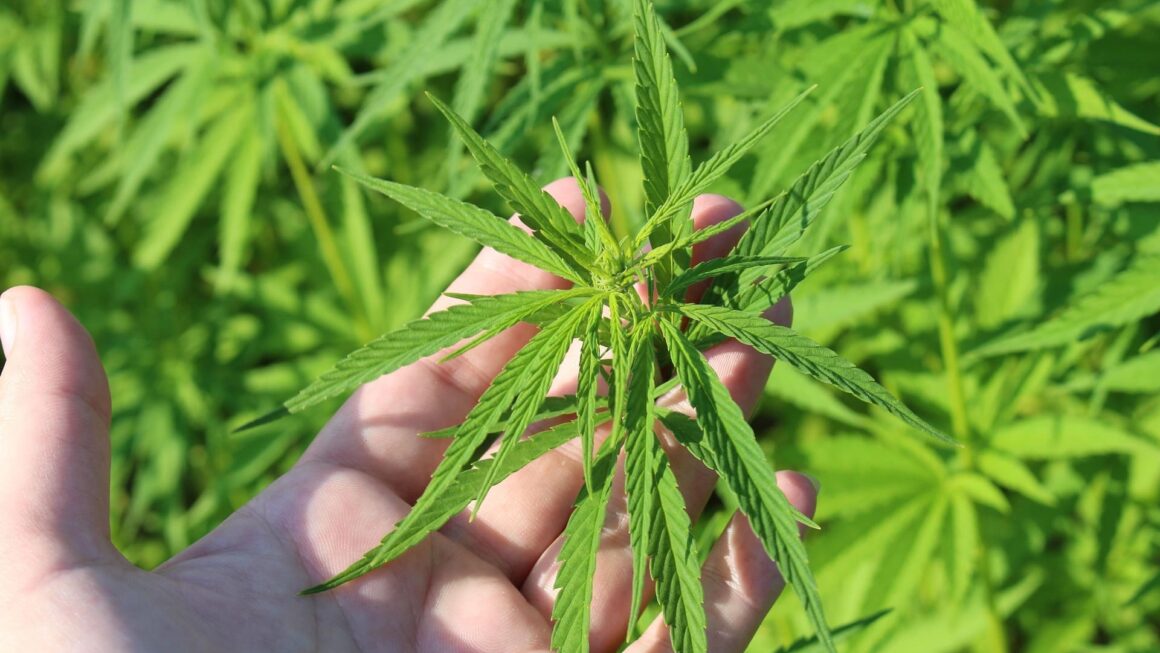Pennsylvania lawmakers are scheduled to consider a bipartisan bill next week that would create a new regulatory body to oversee the state’s existing medical cannabis program while preparing to eventually handle the adult-use market as well.
About three months after the legislation was filed by Sen. Dan Laughlin (R) and 16 other members from across the aisle, the Senate Law & Justice Committee—which the sponsor chairs—is now set to take it up at a hearing on Tuesday.
While the proposal wouldn’t legalize adult-use cannabis as the lead sponsor has supported, it would establish a regulatory infrastructure that could be used to oversee such a program.
Laughlin, who has sponsored legalization bills in the past, previewed the measure in May, writing that Pennsylvania should first take steps to make sure the state is “ready to act when legalization becomes law” by establishing a Cannabis Control Board (CCB) now.
“Legalization of adult-use cannabis in Pennsylvania is no longer a matter of if, it is when. And when that day comes, the state should not be scrambling to build a regulatory system from scratch,” he said. “A transparent, efficient framework should already be in place, one designed to support a safe, well-regulated cannabis industry from day one.”
For now, however, the focus of the board would be on medical cannabis and hemp products.
In a press release sent when the legislation was filed, Laughlin said that “since the 2016 legalization of medical marijuana in Pennsylvania, the state Department of Health’s oversight of the Medical Marijuana Program has been glaringly inconsistent, inefficient and lacking transparency.”
“That coupled with the concerning unregulated intoxicating hemp products being proliferated across our commonwealth warrants the need for a dedicated regulatory board to eliminate these inconsistencies, enhance transparency and provide the structure needed to responsibly manage this industry,” he said. “One of the first tasks this board will tackle is regulating these intoxicating hemp products. Without proper oversight of these products, they will continue to thrive in this legal gray area and be sold without proper age guidelines, labeling and without the collection of any tax revenue.”
Laughlin said earlier this week that he anticipates President Donald Trump will federally reschedule marijuana ahead of the midterms next year. The president said in late August that he’d make a decision on the policy within weeks.
“We’re encouraged to see the Senate Law and Justice Committee take up a THC regulation bill as we believe it will advance a comprehensive discussion on THC regulation in the state,” Brit Crampsie, a spokesperson for the pro-legalization group ResponsiblePA told Marijuana Moment on Friday.
In a cosponsorship memo circulated earlier this year, Laughlin said his bill would “transfer regulatory control of the Medical Marijuana Program to the CCB, ensuring continuity, efficiency, and improved oversight of medical cannabis businesses and patient access.” It would further “establish uniform safety standards to protect consumers from untested and potentially harmful products.”
The bill text itself also doesn’t contain an explicit references to adult-use, or recreational, marijuana, and it would not enact legalization on its own. But the description indicates that the sponsors feel the current regulatory regime under the Pennsylvania Department of Health should be replaced with a more targeted agency that would ostensibly be suited to oversee an adult-use market if lawmakers move to end prohibition.
“By consolidating oversight under a single regulatory board, we can eliminate inconsistencies, enhance transparency, and provide the structure needed to responsibly manage this industry,” the memo says.
Most of the bill that’s going before committee describes the process of establishing the CCB, with details about the selection criteria and other procedural information. The duties section of the legislation lists various authorizations for the board, including members’ ability to conduct investigations, promulgate regulations, consult with other departments and more to achieve its oversight goals.
Meanwhile in Pennsylvania, bipartisan senators earlier this month introduced a bill that would allow terminally ill patients to use of medical marijuana in hospitals.
This comes as state lawmakers continue to push for adult-use marijuana legalization in the commonwealth.
—
Marijuana Moment is tracking hundreds of cannabis, psychedelics and drug policy bills in state legislatures and Congress this year. Patreon supporters pledging at least $25/month get access to our interactive maps, charts and hearing calendar so they don’t miss any developments.![]()
Learn more about our marijuana bill tracker and become a supporter on Patreon to get access.
—
A top aide to Pennsylvania’s governor said last month, however, that lawmakers should stop introducing new competing legalization bills and instead focus on building consensus on the issue—while emphasizing that any measure that advances needs to contain equity provisions if the governor is going to sign it into law.
Laughlin, for his part, said in August that the House “needs to pass the language in my bill and send it to my committee” after which point he “can negotiate with the Senate and the governor.”
The Democratic-controlled House, however, has already advanced a legalization proposal this session that called for a state-run sales model. That measure was quickly quashed in Laughlin’s Senate committee, however, with the GOP lawmaker and others insisting that a more traditional approach of licensing privates businesses would have a better shot.
Laughlin separately said recently that supporters are “picking up votes” to enact the reform this session.
Gov. Josh Shapiro (D), for his part, said last month that he won’t “concede” on his plan to legalize adult-use cannabis through the budget.
Meanwhile, the leading Republican candidate in the race to become the next governor of Pennsylvania dodged a question about her stance on legalizing marijuana—saying she doesn’t have a “policy position” on the issue and arguing that the sitting governor’s proposal for reform “way, way overstated” potential revenue.
The candidate, Pennsylvania Treasurer Stacy Garrity (R), pointed to neighboring Ohio, which launched its own adult-use cannabis market this year, saying “they generated about $115 million in revenue.” And while the populations of both states are relatively comparable, Shapiro’s budget projected $536.5 million in cannabis revenue in the first fiscal year of implementation.
She did, however, say that if Pennsylvania moves forward on enacting the reform, she’ll “make sure that it’s banked appropriately.”
Meanwhile, a Pennsylvania Democratic senator recently said that federal marijuana rescheduling would be “very influential” in advancing legalization in his state, giving “political cover” to GOP members on the fence about reform.
Sen. Sharif Street (D) discussed the status of cannabis legalization efforts in the Keystone State, including a bipartisan proposal to end prohibition that he filed alongside Laughlin in July.
The legalization bill with a state-run sales model that passed the House isn’t necessarily dead for the session as a vehicle to advance reform, however. And Democrats in the chamber recently called on voters to pressure state senators to sign off on the cannabis measure, arguing that it would benefit health and safety and bring in billions of dollars in revenue for the commonwealth.
Polls have shown bipartisan support for legalization among voters, but the reform has consistently stalled in the legislature, due largely to GOP opposition. But not all Republican members are against the policy change—and one recently said she felt her party should seize the “opportunity to snatch” the issue from Democrats.
In addition to pushback from Senate Majority Leader Pittman, another Republican, Sen. Scott Martin, who chairs the influential Appropriations Committee, said earlier this month that he didn’t plan to move on any adult-use legalization bills.
Separately, just days after Laughlin and Street filed their measure, Reps. Emily Kinkead (D) and Abby Major (R)—alongside eight other cosponsors—filed legislation in the House to enact the reform. The pair have previously championed other proposals to end prohibition.
Laughlin and 16 other lawmakers also recently filed a separate bill to create a new regulatory body in the state that would begin overseeing medical cannabis while preparing to eventually handle the adult-use market as well.
Separately, a recent poll found that Pennsylvania voters say they favor a model where cannabis is sold by licensed private businesses rather than through a system of state-run stores.
Meanwhile, a Democratic lawmaker recently filed a bill that seeks to require employers to cover the costs of medical cannabis for qualifying patients receiving workers’ compensation.






